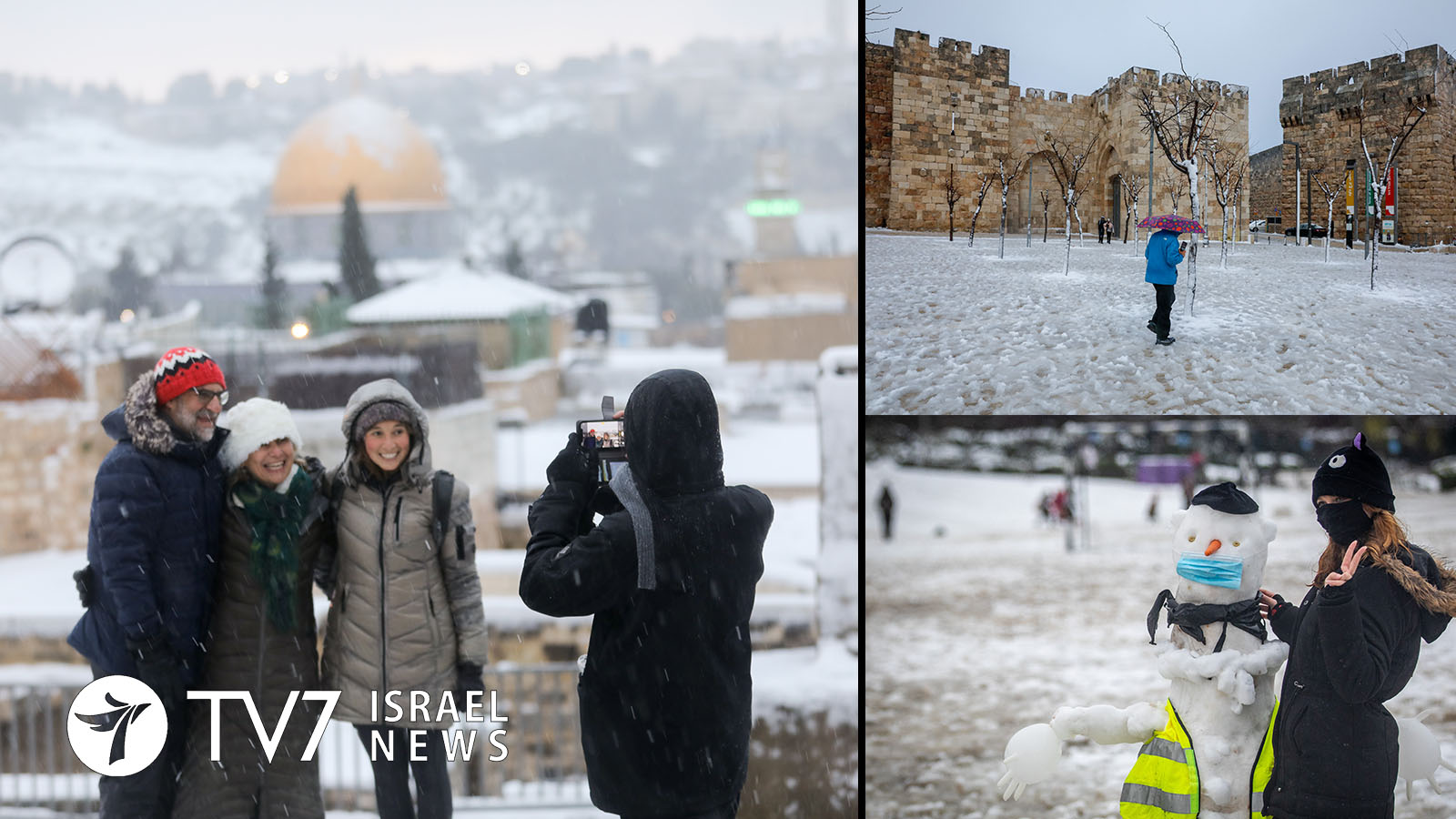Snowfall has turned much of Israel into a winter wonderland.
Most residents greeted the flurries with joy, and set out to build snowmen and engage in other celebratory activities.
Heavy rains gradually transitioned to snowflakes yesterday afternoon, blanketing large areas of the country. Most Jerusalemites, who rarely experience blizzards, were delighted by the developments.
Israel’s central mountainous region, including Jerusalem, only experiences snowfall every few years. The last time snow fell in the capital was in 2019, and the last significant storm was in 2015.
Today’s temperatures are forecast to range between 1-5 °C (34-41 °F) and some 5-10 centimeters (2-4 inches) is expected to accumulate in parts of the city.
Schools that had already been permitted to resume classroom study due to a lifting of coronavirus restrictions remained open, as municipal workers used snowplows and salt to clear roads and main routes into Jerusalem. Firefighting and rescue teams are also on alert to assist in case of emergencies.
Mayor Moshe Lion also announced that city hall has increased welfare checks on vulnerable residents.
Snow also fell in other high-altitude areas of the country, particularly in the north. Israel’s highest peak, Mount Hermon and mountains in the Golan Heights received significant amounts of snow.
As much as 30 centimeters (one foot) is estimated to have covered the Golan, with around10 centimeters (four inches) in nearby areas. Several schools canceled class in the Golan today, as well as in Safed – where city officials are distributing blankets to those in need amid warnings of possible electrical outages.
The flurries have also dusted portions of southern Israel such as Mitzpe Ramon, which is expecting the coldest temperatures in the country today, dropping as low as low as 0 °C (32 °F).
While not seeing snow, much of the country is coping with harsh winter conditions. Winds have been raging in the northern Negev Desert as strong as 110 kilometers (68 miles) per hour. Officials are warning of possible flash floods, sandstorms and haziness in the Judean Desert and the Dead Sea.
Mediterranean coastal cities of Tel Aviv and Haifa have also been hit by heavy intermittent rainfall, where there has also been concern over likely flooding.
The water level of the Sea of Galilee rose by a full 8 centimeters (3 inches) due to overnight rains to 209.48 meters below sea level, which is just 68 centimeters (just over 2 feet) short of full capacity.
The winter weather is forecast to persist throughout tomorrow. Meteorologists predict Saturday and Sunday will remain chilly, although without further precipitation.
